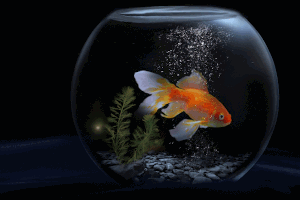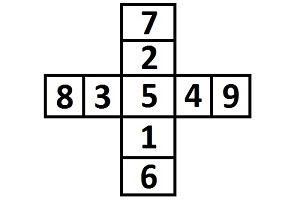A ceiling fan installed in a living space just makes so much sense.
They powerfully regulate air around the house, allow residents to just chill out below it, seldom break down, don’t take up valuable floor space, and probably one of the most economical ways to cool down the premises.
But as you might expect, for something with such a significant presence in the house and it’s constant movement, feng shui would have a say about whether ceiling fans are good or bad fixtures to have at home.
Ceiling fans are one of those things in feng shui that have both good and bad effects on energy dynamics in the house.
After discussing them, you should be able to decide for yourself whether to install one, avoid one, or remove it altogether.
The good part feng shui regarding ceiling fans
The advantages of ceilings fans when it comes to feng shui almost always come down to it’s ability to push air into circulation and nudge energy to move about instead of standing still.
This also helps to keep the air fresh while removing moist air by pushing them out through the windows.
This is undoubtedly a big benefit of having them at home.
In addition, the moving activity of the fan blades increase yang energy and can be a factor in activating favorable water stars that might reside in particular sectors of the house.
But above all else, the cooling effect they have on residents can play a major role in affecting their moods, which in turn can affect the personal auras that interact with energy that is present in the house.
The negative feng shui effects creating by a ceiling fan
The main problem ceiling fans present to feng shui is the hostile looking blades that continually go round in a cutting motion… cutting up the air as that is how they the breeze and wind that homeowners desire.
This cutting action can be liken to pointy exposed pillars and sha chi emitting from uncovered staircases. And they are actually more harmful due to their cutting movement.
This makes residents most vulnerable to the negative effects of it when the fans are located above areas where they rest.
Some of which include:
- Above the sofa set
- Above the dining table
- Above the bed
- etc
For homes with low ceilings, a low ceiling fan would also strengthen the downward pressure that would be pressing down on the living space and inhabitant sitting or sleeping below.
Then there is the housekeeping issue that households like to pretend don’t exist.
These things get very dirty and dusty and require regular maintenance so it that does not spread it’s germs and bacteria all over place every time your flip the on-switch.
Climbing up there to wipe it clean is not going to be a piece of cake.
Key factors to consider when installing a ceiling fan
The dual good-bad nature of ceiling fans can often give people a big dilemma as confusing as whether to have cactus plants or owl paintings in the house.
If you simple need to have it set up at home then do take the following points into consideration.
Firstly, the only acceptable feng shui placement of ceiling fans is when there are no resting areas directly below it.
So it would be best to position your fan in an open space with no chairs, couches or beds below.
The bedroom is not an ideal place. Leaving the living room as the only option for most homes.
Secondly, the higher the ceiling the better. This minimizes the downward pressure it puts on the space.
At the very minimum, the fan should be at least one feng shui foot above the hand of the tallest person in the family when his arms are raised up.
This also means that you should have a ladder on standby in the storeroom when it’s time for spring cleaning or housekeeping.
Thirdly, there should not be any lighting fixtures directly above the ceiling fan.
This is because such configurations would create flicking shadows whenever both fixtures are turned on.
That would basically be very bad feng shui.
Regarding colors, the fan should also not be of a darker shade than the flooring.
And finally, it must be emphasized again that fan must be regularly cleaned so that the chi it circulates around does not carry the dirty impurities flaking off the fan.
Alternatives to the ceiling fan
If discovering the feng shui factors of ceiling fans from reading this has convinced you to avoid buying one, then there are various alternative fans that are readily available these days.
Here are just 3 of them. And they don’t carry as much baggage as the ceiling fan.
Wall fan
A lot of people gasp in disgust and give me the are-you-kidding look when I mention wall fans.
But these things are very practical.
They don’t take up floor space like ceiling fans, have covered blades, and can fill up an empty wall area.
You can control the direction of where the wind blows, and some even have the ability to create the effects of a natural breeze.
They are also relatively inexpensive. Which means that you can install a few of them if cooling down at home is a big priority of yours.
Tower fan
The tower an is basically an evolution of the conventional stand fan.
They are designed as a vertical block with air ducts from top to bottom.
They can produce a high level of wind activity and can often be so well disguised that people don’t even realize that it’s a fan.
Bladeless fan
I don’t really know what’s the technology and science behind these appliances, but bladeless fans totally sidesteps the problem the blades cause to feng shui.
Sometimes called the air-multiplier, they are getting more popular by the day due to their modern look.
Just set them up on the table, a stand, or the TV console and you are done. You won’t even realize that there’s a fan there.
Finally, I’d like to also suggest that the option to install an air-conditioner be considered.
Sometimes the heat can be so unforgiving that only the goodness of aircons can alleviate us from a sweaty agony.
While they might eat up more electricity, they also come with fan functions that enable them to operate like regular fans.
I do understand that some people absolutely loathe aircons. So if you are one of them, your decisions is probably already made on this one.















